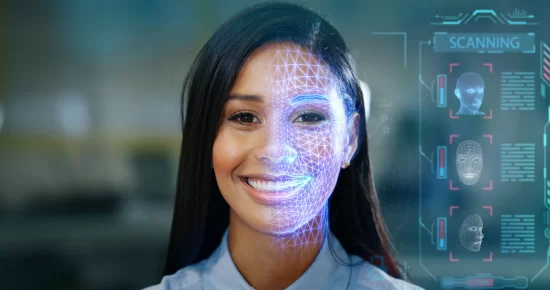AI integration has transformed many industries. Thus, AI face analyzer software is a popular innovation. From improving security to personalizing marketing, this cutting-edge technology is changing businesses. Explore how face analyzer software is changing businesses and its future ramifications below.
Enhancing Security/Access Control
Face analyzer software is redefining access control systems in a security-conscious environment. Traditional techniques like ID cards and passwords are vulnerable to hacking. AI face analyzing technology is safer and more efficient.
The program can reliably identify people by their faces, making access difficult for unauthorized staff. This is essential in secure areas like government, airports, and finance. It improves security and streamlines access for authorized personnel, making the experience smoother.
Customizing Customer Experiences
Personalizing client experiences using face analyzer software is interesting. For instance, retailers use this technology to understand shopper preferences. Real-time face expression and reaction analysis help stores change marketing and product positioning.
Imagine stepping into a store and the AI system detects your mood and preferences from your face. It then customizes product recommendations and marketing messaging to your mood. This enhances shopping and boosts client happiness.
Advances in Healthcare
In healthcare, face analyzer software has made great progress. This technology helps doctors diagnose and track patients. Facial analyzers can detect early indicators of sickness by measuring tiny changes in facial color, warmth, or expression.
After diagnosis, they can help with patient care. Patients who cannot express their pain or discomfort can be detected by them. This helps medical professionals offer timely and appropriate care, increasing patient outcomes and healthcare facility quality.
Advertisement and Market Research
Businesses aiming to understand consumer behavior have always needed market research. Face analyzer software elevates market research. It can analyze consumer reactions to ads, products, and services by examining facial expressions.
Focus group participants’ facial reactions while seeing an advertisement are monitored. The AI system may then assess which sections of the ad were most effective and which needed improvement. This vital data helps organizations improve their marketing strategy and campaigns.
Emotional Intelligence Training
Face analyzer software is crucial to emotional intelligence training in schooling and professional development. It measures an individual’s ability to notice, comprehend, and manage emotions, a vital talent in many fields.
Customer service workers can use face analyzers to learn how to sympathize and help consumers. Teachers can measure and improve students’ emotional intelligence with this technology, creating a more compassionate and cooperative learning environment.
Security and Ethics
Although the program has many benefits, it raises ethical and security problems. Since the technology could be used for unauthorized surveillance, privacy is crucial. Policymakers and industry leaders must balance security and privacy.
In addition, AI face analyzer software development and deployment must be transparent and accountable. Preventing unfair or damaging outcomes requires unbiased and discrimination-free algorithms.
Conclusion
AI face analyzer software is changing industries in ways few could have envisioned a few years ago. It has great potential to improve security, personalization, healthcare, and emotional intelligence. However, ethical and privacy issues must be addressed as you manage this disruptive technology.







